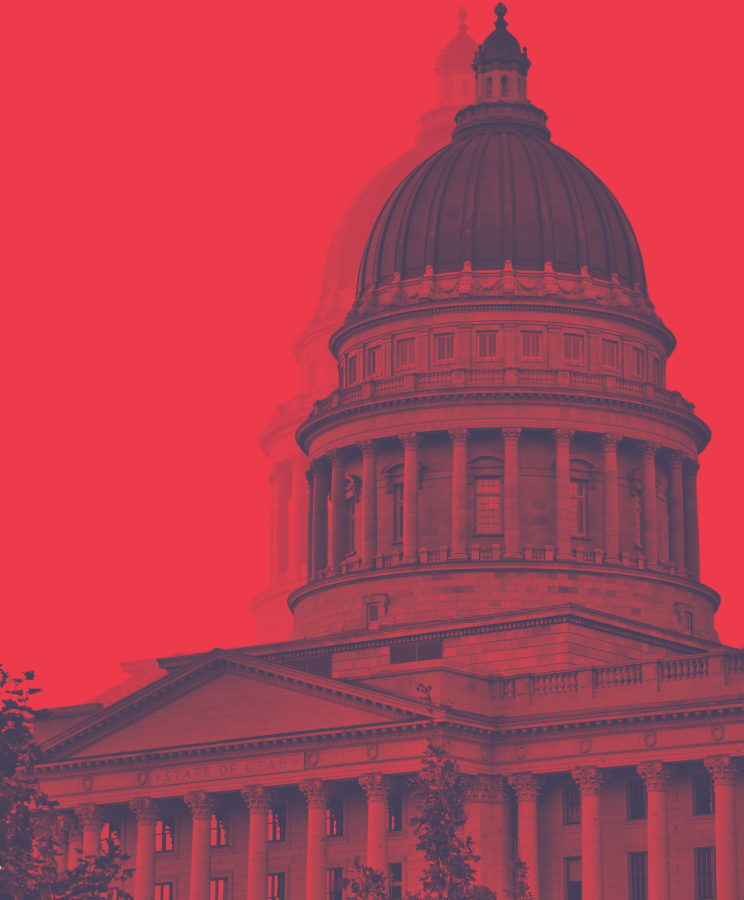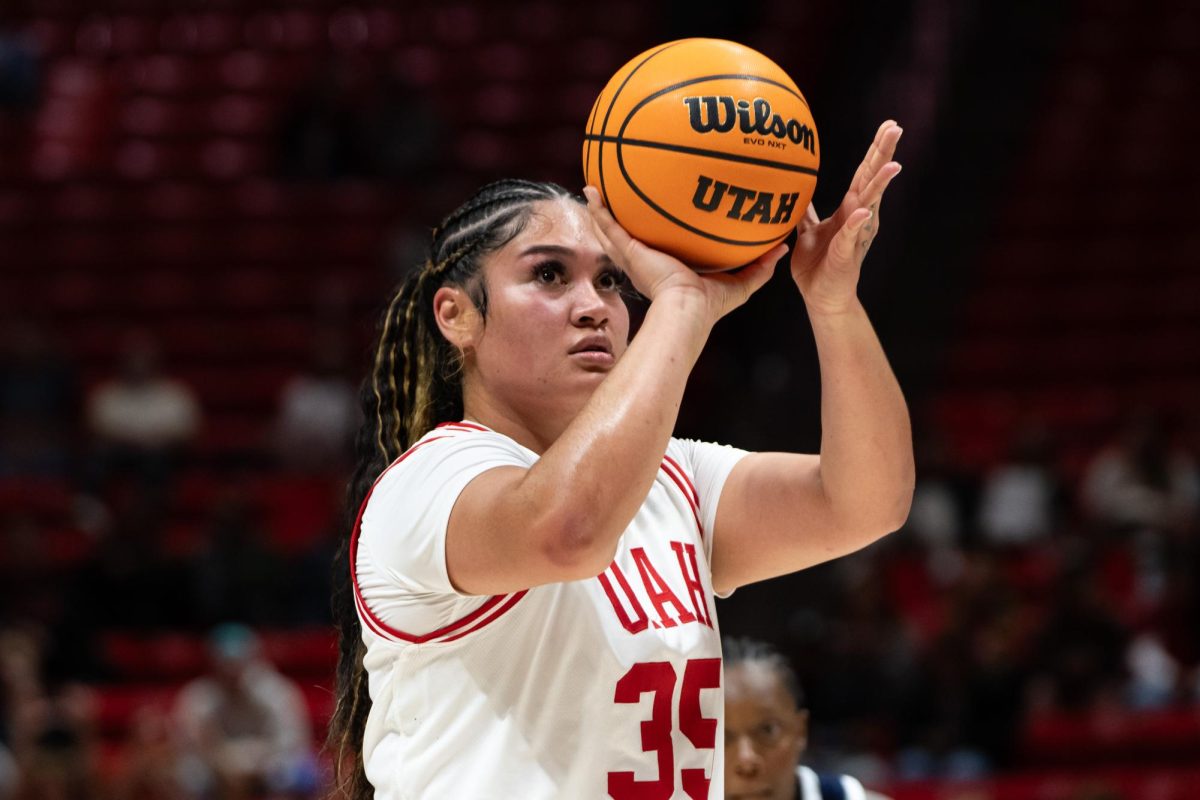Bringhurst: RINOs are Inherent to Utah’s Political Process
(Graphic by Sydney Stam | The Daily Utah Chronicle)
April 8, 2022
I recently filed to change my political affiliation to Republican to participate in Utah’s primary election in June. The state hasn’t had a Democrat governor since 1985, and hasn’t had a Democrat senator since 1977. People sometimes refer to Utah as a one-party state, and Democrats stand little chance at securing a seat in either role. Because of this, Democrats, including myself, sometimes choose to register as Republican during election cycles. Republicans should examine the flaws in the political process that encourage Democrats to switch parties rather than criticize Democrats’ apparent lack of values.
Electing the “Better” Republican
Salt Lake County’s current district boundaries and Utah’s political makeup almost guarantees that most elected officials will be Republican. Unless you wish to cast a ballot for a Democrat doomed to lose from the beginning, you will likely want to vote for a Republican. And in Utah, you must be registered as a Republican to vote for a Republican candidate.
The term RINO, which stands for Republican In Name Only, was coined to label those who switch parties for election season. Notable Utah Democrats participate in the party-switching process. Former Salt Lake City Mayor Ralph Becker registered as a Republican during the 2020 election cycle to vote for Jon Huntsman. “A Democrat is not going to win statewide office,” he said to Salt Lake City Weekly. “And there are people on the Republican side I want to vote for.”
This year, non-Republicans seem to be united on unseating Sen. Mike Lee. The Independent Voter Coalition encourages Utah voters to register as Republicans to vote against Sen. Lee in the upcoming election, and instead vote for other candidates, such as Evan McMullin.
Democrats who choose this option aren’t disregarding their values or rigging the political system — they’re working within the political system they live in. Their values don’t align with Sen. Lee, but voting for a Democrat only makes it more likely for him to win. Instead, they choose to vote for a Republican better than Sen. Lee, someone more likely to appeal to average Utahns.
Previous Disregard for Democrat Voices
If Utah legislators had shown any indication that they cared about party fairness and equal representation, many Democrats would not have decided to play Utah politics so strategically.
Recently, Republican legislators drafted new congressional district lines rather than adopt one drafted by the independent committee, which was voter-approved by a citizen ballot initiative. This decision signaled to Utahns that legislators don’t care about voters’ opinions unless they coincide with their own.
Republican legislators also passed a bill to move up the deadline to change party affiliation. Democrats now only have until March 31 if they want to vote for a Republican in November, rather than until the primary election. Republican Rep. Jordan Teuscher said the bill was intended to deter Democrats from interfering with the GOP’s nominations.
Republican Hypocrisy
Rep. Teuscher criticized Democrats’ choice to switch parties, but never seemed to think critically about why they are switching in the first place. In an interview with KSL, Teuscher said, “If you have people coming in [to vote] who don’t believe in those same values, that don’t ascribe to the party platform or beliefs, to come in and pick who the nominee of that party is, that really undermines the process.” But party-switching had little effect on the state’s 2020 primary election. The Republican party is undermining the political process in Utah far more than Democrats.
After Republicans cracked Salt Lake County district lines to make it almost impossible for a Democrat to win any district, Utah Democrats have slim choices. I want to know my vote has the potential to make change. However, I do not have that reassurance voting for a Democrat in Utah, due to the efforts of Republican legislators.
On a federal scale, the GOP enacts far more voter restrictions than Democrats. Republican legislators in Utah also repeatedly disregarded citizen ballot-initiatives that supported left-leaning policies. Democrats aren’t interfering with the political process in Utah — Republicans are.
Utahn Rosemary Card was vocal on social media about switching parties and she received messages accusing her of voter fraud and unethical behavior. Still, she defends her choice. “These are the rules that the Republican Party has outlined,” Card told Deseret News. “People are simply following the rules.”
Until Republican legislators choose to create a more fair and representative political system in Utah, Democrats will have to adjust accordingly. Republican legislators need to recognize how their own actions resulted in Utah’s political polarization. For now, being a RINO is a necessary aspect of being a Democrat in Utah.








